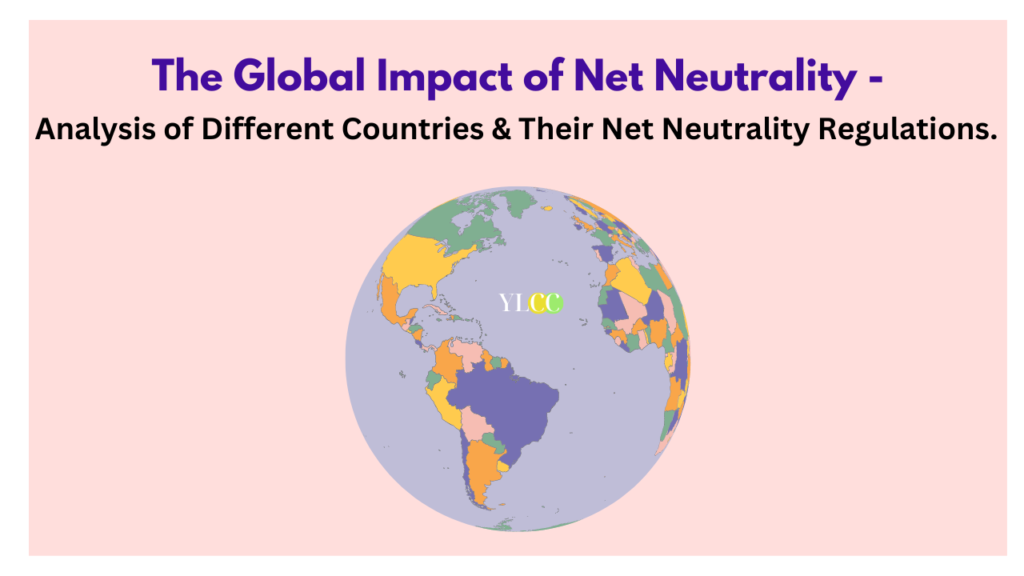
In today’s era, where everyone likes FREEdom!, everyone has an access to the internet FREE! And would like access it equally FREEly!, Just imagine being hindered from watching your favourite Netflix show because your Internet Service Provider (ISP) wants so, or you being charged more to access your favourite every time you go to the social site Facebook? Just not cool, right?! Internet is a vast expanse of endless possibilities as it is, and nobody would ever like being controlled in this particular sphere where their personal freedom soars on the wings of digital technologies & everyone just wants to feel so free to all the exposure they could possibly give! For that, Internet Traffic so desperately needs to be treated FREEly!
And just like any other folk tale of the free birds up in the sky, here also exists a mighty mite, to trigger the endless hopes, for all those possibilities, and to protect the freedom of the users, here we could happily possibly say “Net Neutrality” plays that hero role pretty well in this era of beloved Internet.
So in today’s article, we are going to read about the Global Impact of Net Neutrality and will analyse how different countries including India are regulating this.
The act of bestowing preferential treatment upon certain types of content is what is being referred to here, services or users with preferential treatment over others is a contentious issue within the sphere of net neutrality. This entails the prioritization of traffic emanating from particular websites or services, or the imposition of additional fees for their access. Proponents of net neutrality view such practices as potentially resulting in the establishment of a system, that would favour corporate giants to the detriment of smaller firms. This outcome, they contend, would inhibit innovation and competition, and undermine the core tenets of an open internet that provides equal opportunities and unhindered access to information. In simple words, we would say the ISP (Internet Service Providers) can not and do not have permission to impede any kind of access to specific websites or even services, by means of blocking or imposing additional charges for access to such sites or services.
Apparently, different countries have their different take on Net Neutrality, and how they make, and implement its regulations of it. Let us read below some examples of such nations endeavouring to navigate their course through the landscape of net neutrality and internet service provider regulations, seeking to safeguard their technological sovereignty.
THE INDIA
(because why not THE India)
In India, the Telecom Regulatory Authority of India (TRAI) in 2018 https://www.trai.gov.in/telecom/net-neutrality (click here), executed that no preferential treatment must be given by Internet Service Providers (ISPs) to websites, services, or applications, blocking and slowing down internet traffic for some, whereas diverting or easing to the others. In here, only those who have access to such preferential rights will get access or the eased way throughout their internet usage. Others may have to face paying the extra amount for rightful access and the potential digital divide. To address this concern, India has implemented strong net neutrality regulations that prohibit Internet Service Providers (ISPs) from engaging in such discriminatory practices.
THE UNITED STATES
In the United States, the Federal Communications Commission (FCC) in 2015 https://www.ftc.gov/terms/net-neutrality (click here), implemented and became the first country to execute net neutrality regulations, though in 2017, the Federal Communications Commission (FCC) repealed the net neutrality regulations amidst a controversy, with detractors bemoaning the potentially deleterious effects on innovation and competition in the tech industry, as well as the prospect of consumer exploitation through discriminatory pricing practices by Internet Service Providers (ISPs). It was a subject of much debate and controversy back then, but despite of all those factors still, some of the states of The United States passed their Net Neutrality regulations, of their own, in which states like California had the vision to do so and did so.
THE EUROPEAN UNION
In the European Union, the Open Internet Regulation came into force in 2015, which intended to implement regulations and establish a regulatory body The Body of European Regulators for Electronic Communications (BEREC), to
oversee and enforce rules related to electronic communications. As a regulatory authority, BEREC is responsible for ensuring that electronic communication services within the European Union are consistent with the principles of fair competition, consumer protection, and public interest.
CHINA
Formerly, in China, there lies a lot of regulations, and censorship already on internet users and businesses, imposed by their government and authorities previously, while their access to the internet and information is very limited, and Internet Service Providers (ISPs) already have control over the internet traffic, in compliance with there Government in charge. The government there controls all the substance, basis, and structure, carefully considered to ensure content, foundation and framework on the internet. Although and despite facing substantial backlash and extensive criticism by human rights activists and advocates, the authorities maintain their stand on their controls and continue to be steadfast in their position, on the regulations they thus impose.
To summarise in brief today’s article, we would conclude with the fact, that Net Neutrality is subjective to different thoughts and regulations depending on the regional traditions, their society’s and their government’s outlook and prejudice, on the internet, its content, and its traffic diversions being discrete enough, to variate the regulations imposed differently in each country, some jurisdictions enacting strong regulations to safeguard against discriminatory practices by Internet Service Providers (ISPs), while others have adopted weaker regulations that have allowed for preferential treatment and discrimination against certain distinct kinds, and classes of internet traffic. Hence, igniting and stimulating a spark of digital divide and disparity, and unequal treatment of internet traffic, which should be open, unbiased and impartial for all users, not hindering their immense love for the usage of it with full FREEdom, as they like!
YLCC would like to thank Shaurya Chaturvedi for her valuable insights into this article.






